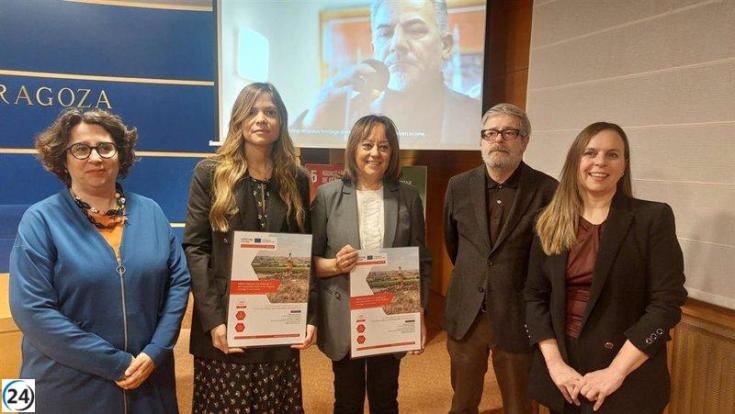Zaragoza Provincial Council strengthens awareness of RELiHE
The Zaragoza Provincial Council (DPZ) has taken a proactive role in disseminating the RELiHE project—Religious Heritage in Rural Areas—demonstrating its longstanding commitment to safeguarding religious heritage throughout its territory. On march 2025, the institution hosted a public event to present the project to local stakeholders, partners, and the media, reinforcing its leading role in the Interreg Europe initiative.
“The project focuses on unlocking the potential of religious heritage from various faiths as a driver of sustainable development in rural regions,” explained Charo Lázaro, DPZ’s Deputy for Culture. She emphasized how this initiative aligns with the broader mission of the Council, which has built a strong record of preservation and public engagement through institutions such as Territorio Mudéjar, Fundación Uncastillo, and Fundación Tarazona Monumental.
The event featured contributions from several key participants involved in the implementation of RELiHE. Isabel Soria, cultural heritage technician at DPZ, presented the Council’s ongoing technical work and strategic approach to managing rural religious heritage. Juanjo Borque, Head of the Department of Culture and Social Welfare, emphasized that:
“DPZ is the institution in Aragón with the longest and most consistent record in restoring the province’s heritage. In each of our 292 municipalities, there are not just one, but often several churches, chapels, and religious sites. This wealth of architecture requires forward-thinking solutions.”
Among the key territorial stakeholders, Victoria Trasobares, director of Territorio Mudéjar, provided insight into the challenges and opportunities facing rural religious buildings. As she pointed out:
“There are many sites where religious heritage is no longer used. We need to explore new functions for these spaces—uses that are respectful of their cultural and spiritual value, but also adaptable and sustainable over time.”
Trasobares recently participated in the technical visit to the Upper Palatinate region (Germany) as invited stakeholder alongside the DPZ team and other European partners, exploring governance models and reuse strategies that could inform regional policies back in the province of Zaragoza.
Irene Ruiz Bazán, from the Lead Advisory Partner Politecnico di Torino, also attended the press conference to provide an overview of the RELiHE project, and highlight the expected contributions of the Zaragoza Provincial Council. Building on its previous leadership in the MOMAr project (Models of Management for Singular Rural Heritage), DPZ brings valuable experience in rural heritage governance, stakeholder coordination, and the development of sustainable reuse strategies for disused religious sites."
DPZ’s involvement in RELiHE includes not only participation in technical visits and interregional exchanges but also the drafting of strategic documents, stakeholder consultations, and public awareness actions. The March event marked an important milestone in the project’s regional dissemination strategy, encouraging dialogue between public and ecclesiastic authorities, stakeholders researchers, and civil society. Determined to ensure that the project reaches a wide audience and has a meaningful impact on rural communities, the Zaragoza Provincial Council has made communication and visibility a key priority within its RELiHE activities.
By hosting and promoting RELiHE, the Council reaffirms its commitment to making rural religious heritage a living, dynamic part of the territory’s future—one rooted in identity, open to innovation, and aligned with the goals of sustainable development.

